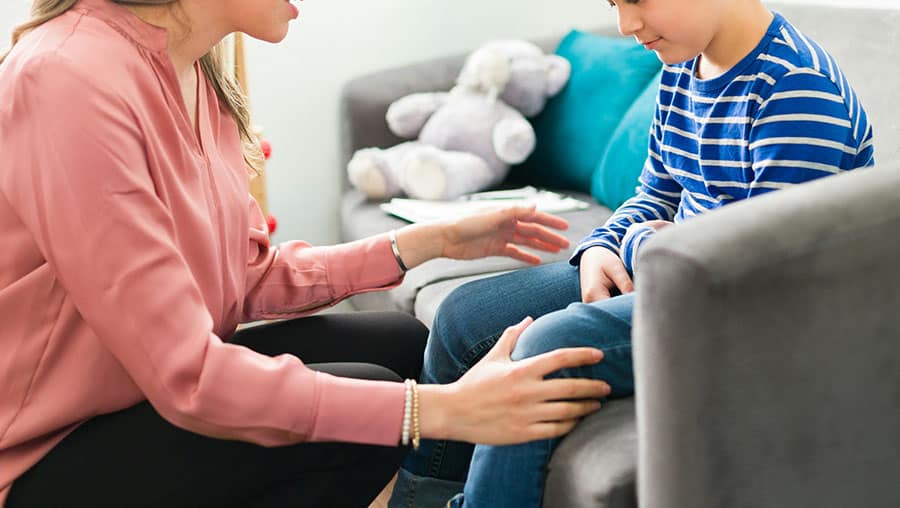5 Tips for Teaching Emotional Regulation Skills
Emotional regulation skills are essential for children of all abilities, but they can be particularly transformative for students with multiple disabilities, including autism spectrum disorder (ASD) and Down syndrome. These skills help children recognize, understand, and manage their emotions, fostering better communication, social interactions, and overall well-being.
At The Deron School, we understand that teaching emotional regulation requires patience, consistency, and a personalized approach. Here are five practical tips for teaching emotional regulation skills that can be adapted to children with varying needs.
1. Model Emotional Awareness
Children learn a great deal by observing the adults around them. Modeling emotional awareness means openly acknowledging your own feelings in appropriate ways. For instance, saying, “I feel frustrated when I spill my coffee, so I’m going to take a deep breath and try again,” demonstrates both recognition and management of emotion. This technique helps students connect emotions to words and actions, creating a framework for them to emulate.
2. Create a Safe and Predictable Environment
A nurturing, structured environment is critical for teaching emotional regulation. Predictable routines and clear expectations provide a sense of security, which helps children regulate their emotions more effectively. At The Deron School, we emphasize consistency while tailoring support to each student’s needs. When students know what to expect, transitions and unexpected changes become easier to navigate, reducing the likelihood of emotional outbursts.
3. Teach Coping Strategies Through Practice
Emotional regulation is a skill that develops through practice, not just instruction. Techniques such as deep breathing, counting, or using a calm-down corner can give students practical tools to manage strong emotions. Role-playing scenarios or using social stories are effective strategies for helping students rehearse emotional responses in a safe setting. Consistently practicing these strategies empowers students to apply them in real-life situations.
4. Use Visual Supports and Cues
Visual supports, such as charts, emotion cards, or color-coded zones, are particularly helpful for students with ASD or other learning differences. These cues can guide students in identifying their feelings and choosing an appropriate response. For example, a “traffic light” system—green for calm, yellow for heightened alertness, and red for strong emotion—provides a clear, visual representation of emotional states and helps students self-monitor before emotions escalate.
5. Foster Emotional Literacy Through Communication
Developing emotional regulation skills is closely tied to building emotional literacy. Encourage students to express their feelings using words, gestures, or other communication methods suited to their abilities. Ask questions like, “How does your body feel when you’re upset?” or “What can we do to help you feel better?” This not only promotes self-awareness but also strengthens social connections and empathy among peers.
Supporting Emotional Growth at The Deron School
Teaching emotional regulation skills is most effective when integrated into a comprehensive, individualized approach. At The Deron School, we combine a family-centered culture, personalized curriculum, and a team of experienced educators to help students reach their full potential. Our programs focus not only on academic achievement but also on social-emotional development, equipping students with lifelong tools to navigate challenges with confidence.
We understand that every child’s journey is unique. That’s why our staff collaborates closely with families, therapists, and other support professionals to ensure that emotional regulation skills are reinforced across all environments—school, home, and the community. By providing consistent guidance and encouragement, we help students build resilience, self-confidence, and independence.
Reach out to our team to learn more about our programs and how we can support your child in reaching their greatest potential. Together, we can help your child thrive academically, socially, and emotionally.
